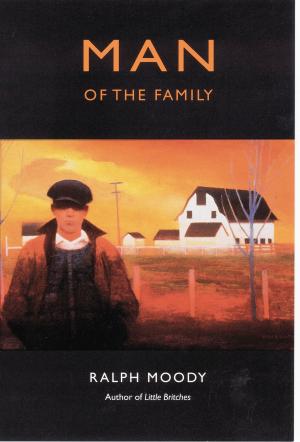Queering Kansas City Jazz
Gender, Performance, and the History of a Scene
Nonfiction, Social & Cultural Studies, Social Science, Gender Studies, Women&, History, Americas, United States| Author: | Amber R. Clifford-Napoleone | ISBN: | 9781496210326 |
| Publisher: | UNP - Nebraska | Publication: | November 1, 2018 |
| Imprint: | University of Nebraska Press | Language: | English |
| Author: | Amber R. Clifford-Napoleone |
| ISBN: | 9781496210326 |
| Publisher: | UNP - Nebraska |
| Publication: | November 1, 2018 |
| Imprint: | University of Nebraska Press |
| Language: | English |
The Jazz Age, a phenomenon that shaped American leisure culture in the early twentieth century, coincided with the growth of Kansas City, Missouri, from frontier town to metropolitan city. Though Kansas City’s music, culture, and stars are well covered, *Queering Kansas City Jazz *supplements the grand narrative of jazz history by including queer identities in the city’s history while framing the jazz-scene experience in terms of identity and space. Cabarets, gender impressionism clubs, and sites of sex tourism in Kansas City served as world-making spaces for those whose performance of identity transgressed hegemonic notions of gender, sexuality, race, and class. Amber R. Clifford-Napoleone takes an interdisciplinary approach to provide a critical deconstruction of how the jazz scene offered a space for nonnormative gender practice and performance and acted as a site of contested identity and spatial territory.
Few books examine the changing ideas about gender in the turn-of-the-century Great Plains, under the false assumption that people in middle-American places experienced cultural shifts only as an aftershock of events on the coasts. This approach overlooks the region’s contested territories, identities, and memories and fails to adequately explain the social and cultural disruptions experienced on the plains. Clifford-Napoleone rectifies this oversight and shows how Kansas City represents the complexity of the jazz scene in America as a microcosm of all the other people who made the culture, clubs, music, and cabarets of the age possible.
The Jazz Age, a phenomenon that shaped American leisure culture in the early twentieth century, coincided with the growth of Kansas City, Missouri, from frontier town to metropolitan city. Though Kansas City’s music, culture, and stars are well covered, *Queering Kansas City Jazz *supplements the grand narrative of jazz history by including queer identities in the city’s history while framing the jazz-scene experience in terms of identity and space. Cabarets, gender impressionism clubs, and sites of sex tourism in Kansas City served as world-making spaces for those whose performance of identity transgressed hegemonic notions of gender, sexuality, race, and class. Amber R. Clifford-Napoleone takes an interdisciplinary approach to provide a critical deconstruction of how the jazz scene offered a space for nonnormative gender practice and performance and acted as a site of contested identity and spatial territory.
Few books examine the changing ideas about gender in the turn-of-the-century Great Plains, under the false assumption that people in middle-American places experienced cultural shifts only as an aftershock of events on the coasts. This approach overlooks the region’s contested territories, identities, and memories and fails to adequately explain the social and cultural disruptions experienced on the plains. Clifford-Napoleone rectifies this oversight and shows how Kansas City represents the complexity of the jazz scene in America as a microcosm of all the other people who made the culture, clubs, music, and cabarets of the age possible.















